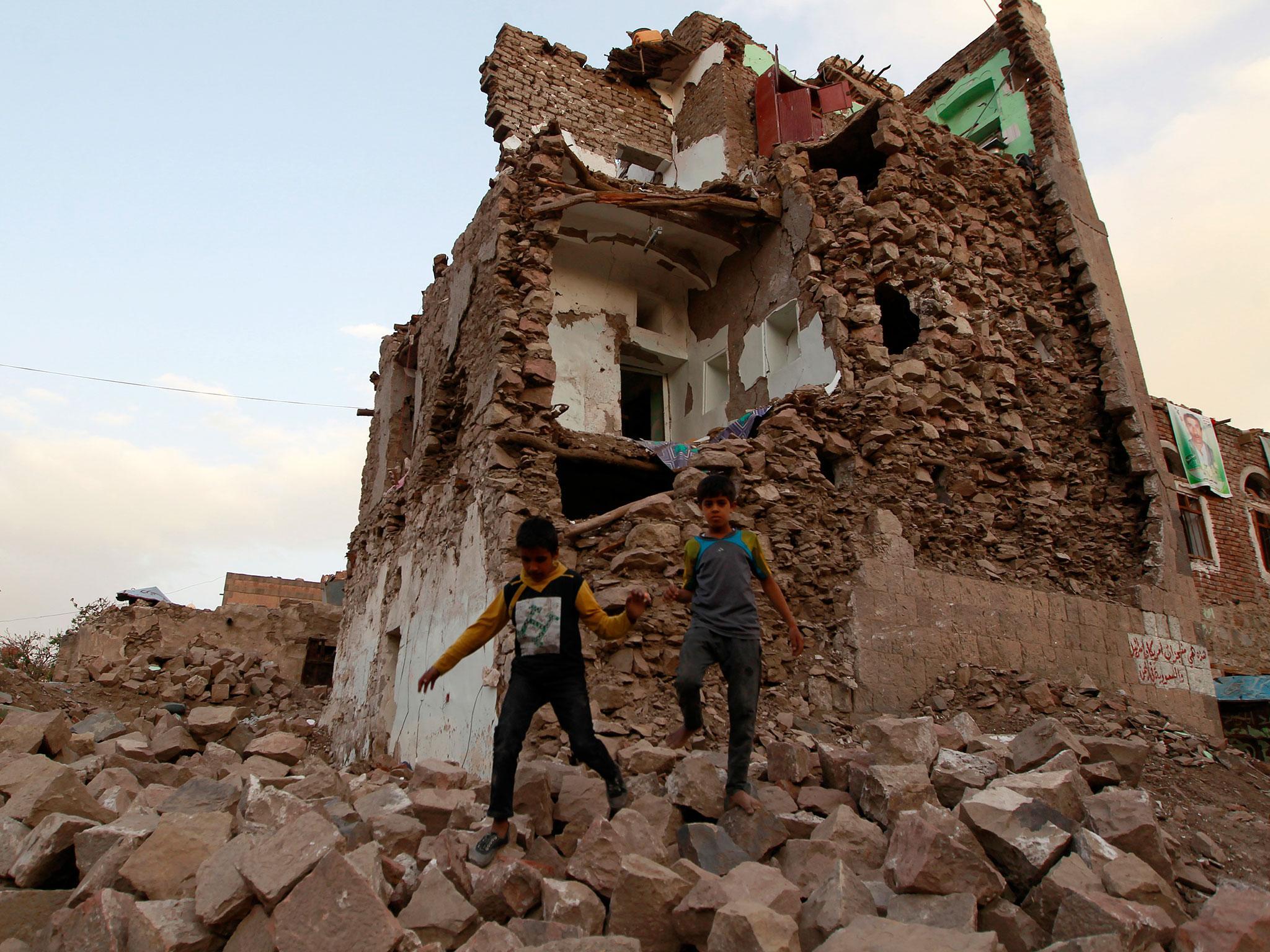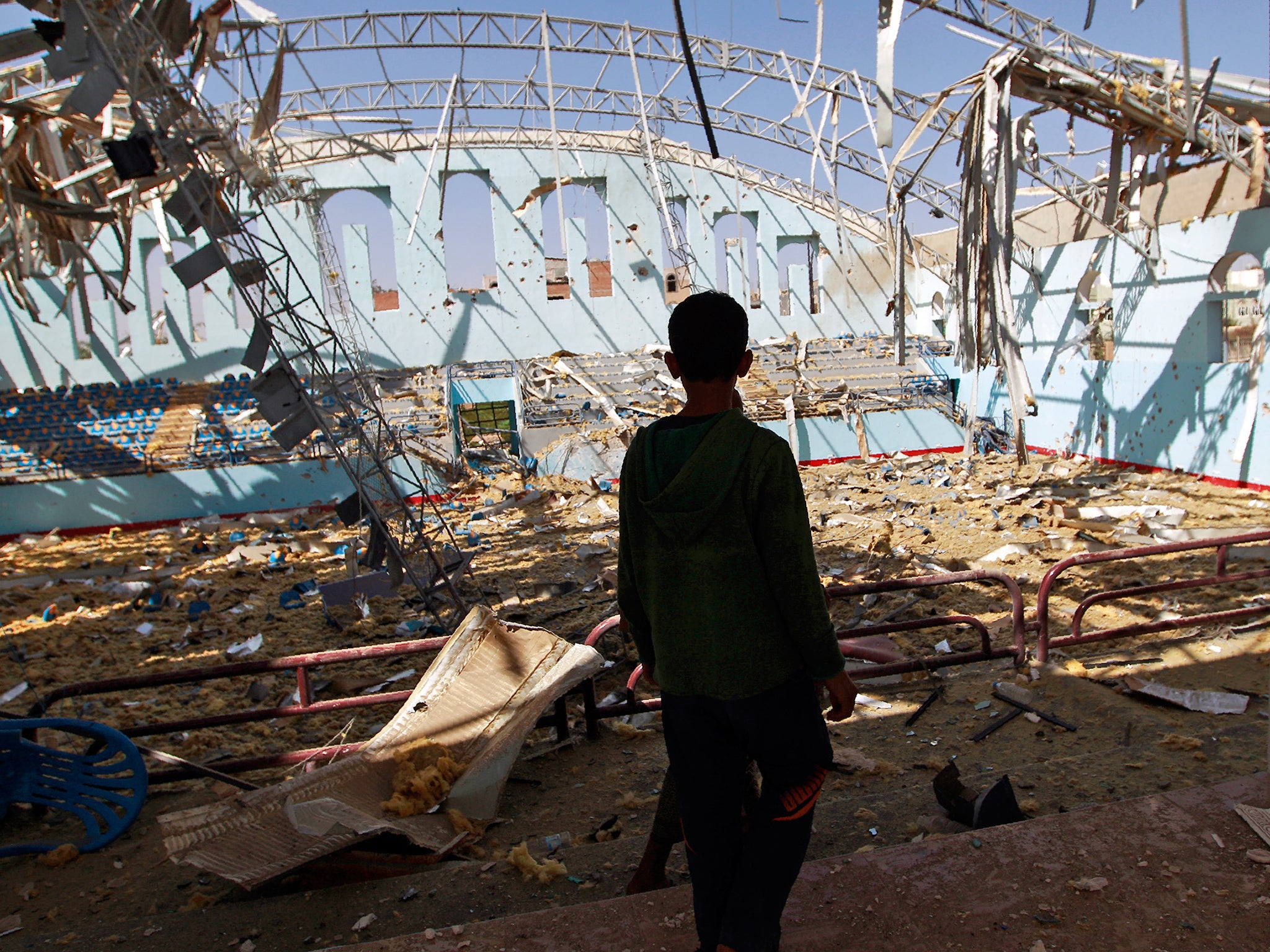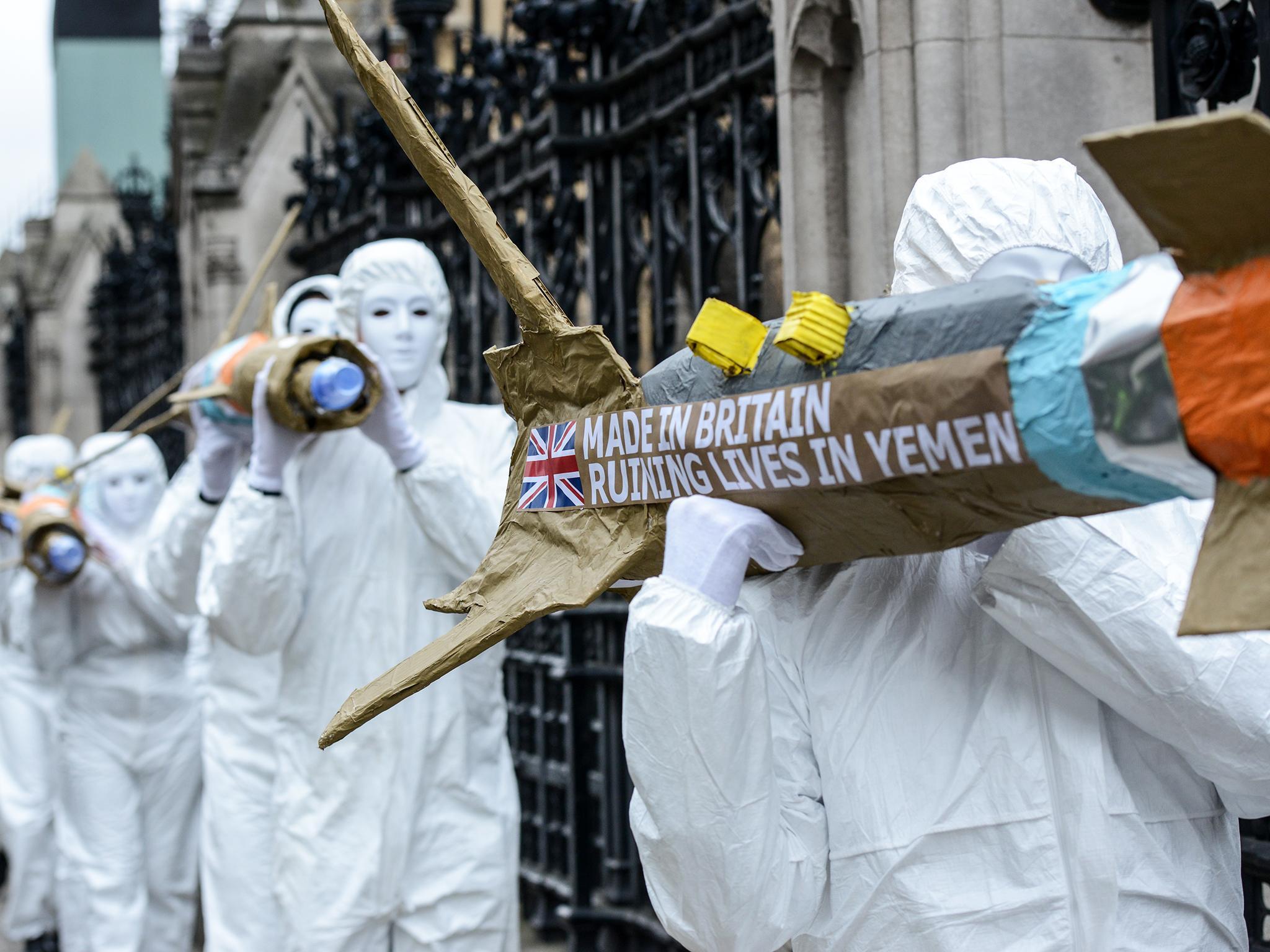Saudi Arabia-led coalition removed from UN report on Yemen child deaths
The Saudi-led coalition was accused of causing 60 per cent of child deaths and injuries in Yemen last year

Your support helps us to tell the story
From reproductive rights to climate change to Big Tech, The Independent is on the ground when the story is developing. Whether it's investigating the financials of Elon Musk's pro-Trump PAC or producing our latest documentary, 'The A Word', which shines a light on the American women fighting for reproductive rights, we know how important it is to parse out the facts from the messaging.
At such a critical moment in US history, we need reporters on the ground. Your donation allows us to keep sending journalists to speak to both sides of the story.
The Independent is trusted by Americans across the entire political spectrum. And unlike many other quality news outlets, we choose not to lock Americans out of our reporting and analysis with paywalls. We believe quality journalism should be available to everyone, paid for by those who can afford it.
Your support makes all the difference.The UN has been heavily criticised by human rights groups for removing the Saudi-led coalition fighting rebels in Yemen from a blacklist of states and groups accused of committing grave violations against children.
A spokesman for UN Secretary General Ban Ki-moon announced the change following a vehement protest from Saudi Arabia.
Saudi Arabia's UN Ambassador Abdallah Al-Mouallimi said the accusation the coalition was responsible for 60 per cent of child deaths and injuries in Yemen last year was "wildly exaggerated".
Earlier, he argued Saudi Arabia's inclusion on the list was based on "inaccurate and incomplete" information and asked for an immediate correction.
The secretary-general's annual report on children and armed conflict said the Saudi-led coalition was responsible for killing 510 children and wounding 667 in the Yemen conflict last year.
The report also verified 101 attacks on schools and hospitals, of which 48 per cent were attributed to the coalition.
Mr Al-Mouallimi said "the casualties are far fewer".
The UN said on Monday it would carry out a joint review of the cases and numbers in the report.
Philippe Bolopion, deputy director for global advocacy at Human Rights Watch, said his organisation and others have also documented the impact of coalition air strikes on children, schools and hospitals.

Mr Bolopion accused the secretary-general's office of engaging in "political manipulation" and tainting his human rights legacy.
"After giving a similar pass to Israel last year, the UN secretary-general's office has hit a new low by capitulating to Saudi Arabia's brazen pressure and taking the country off its just published list of shame," he said.
"Yemen's children deserve better."

Richard Bennett, Representative and Head of Amnesty International’s UN Office, said: “It is unprecedented for the UN to bow to pressure to alter its own published report on children in armed conflict. It is unconscionable that this pressure was brought to bear by one of the very states listed in the report.
“Blatant pandering such as this undermines all of the UN’s work to protect children caught up in war. Secretary-General Ban must not succumb to pressure and undermine the important role of his own Special Representative. By doing so he also damages the credibility of the UN as a whole.
“This is a stark example of why the UN needs to stand up for human rights and its own principles – otherwise it will rapidly become part of the problem rather than the solution.”
The Saudi-led, US-backed coalition supporting Yemen's internationally recognised government is battling the Houthi rebels and their allies.
The Houthis have held Yemen's capital, Sanaa, since September 2014. Their advance across the Arab world's poorest country brought the Saudi-led coalition into the war in March 2015. The UN says over 6,000 people have been killed.

MPs have raised urgent concerns about continuing British arms sales to Saudi Arabia during the conflict, while the Ministry of Defence is urgently investigating evidence of the coalition's use of British-made cluster bombs.
The UN declared a truce on 10 April to pave the way for peace talks, which started a week later in Kuwait. But the fragile truce has been marred with violations and breaches by both sides, as clashes and air strikes led by the coalition continued in different areas across the country.
Additional reporting by AP
Join our commenting forum
Join thought-provoking conversations, follow other Independent readers and see their replies
Comments